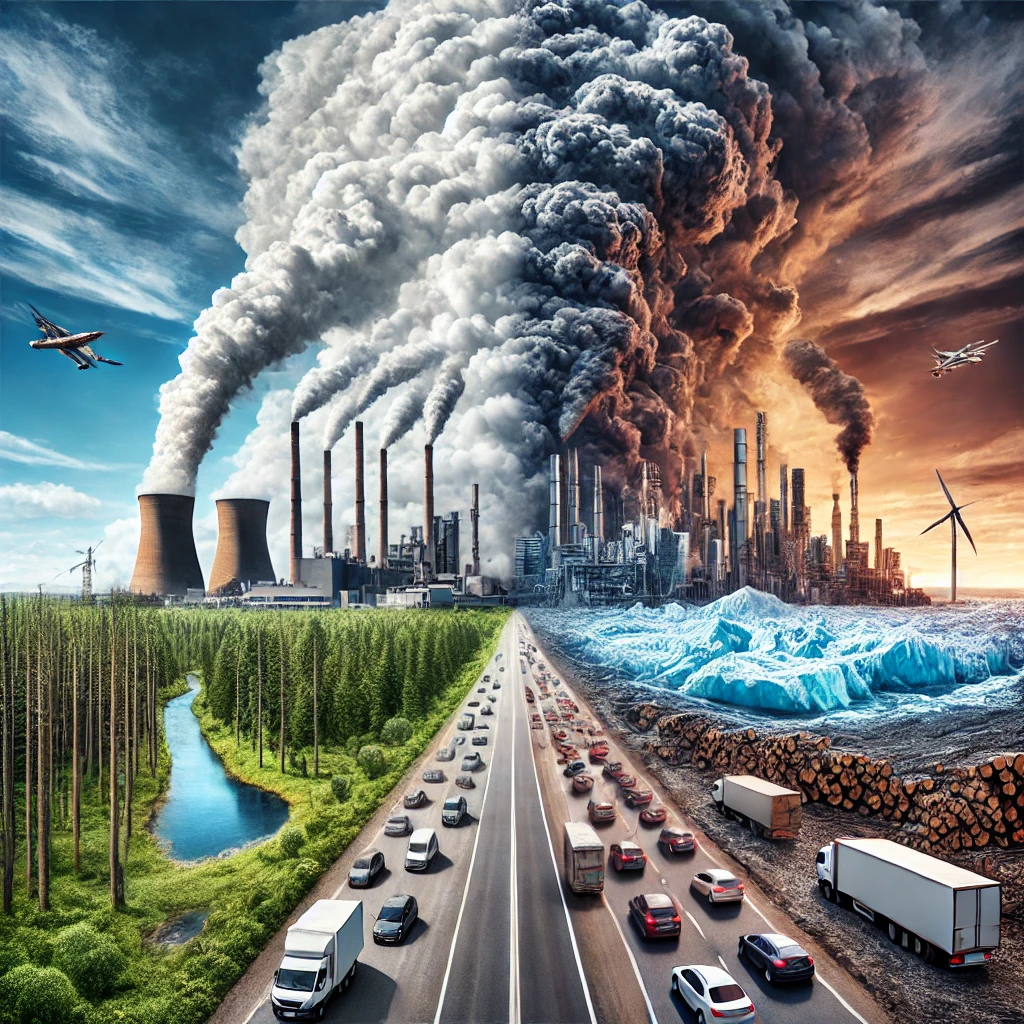What causes climate change?
Article Source: Causes of Climate Change

Why You Should Care
Climate change affects everyone, from the food we eat to the air we breathe. Understanding what causes climate change is key to tackling it and protecting our planet for future generations. Knowing the main factors driving climate change can help us make better choices and support policies that reduce our impact on the environment.
Answering the Question… What Causes Climate Change?
Climate change is mainly caused by human activities, especially the burning of fossil fuels like coal, oil, and natural gas. These activities release large amounts of greenhouse gases, such as carbon dioxide (CO2), into the atmosphere. The study found that CO2 levels have increased by 40% since the industrial revolution, leading to higher global temperatures. Deforestation and industrial processes also contribute to the problem by reducing the planet’s ability to absorb CO2.
How Was the Study Done?
Researchers analyzed data from various sources, including atmospheric measurements, ice cores, and climate models. They studied the historical levels of greenhouse gases and compared them with current levels to understand the human impact on the climate. The study also reviewed the effects of natural factors, such as volcanic eruptions and solar radiation, to distinguish human influence from natural variability.
What Was Discovered?
- Rising CO2 Levels: The study found that carbon dioxide levels have risen by approximately 40% since the late 1800s, from about 280 parts per million (ppm) to over 415 ppm today. This rise in CO2 is directly linked to the burning of fossil fuels for energy production, transportation, and industry. The increase in CO2 concentration is a key driver of the warming trend observed globally.
- Human Contribution: The research highlights that human activities, particularly the burning of fossil fuels, are responsible for more than 75% of the increase in greenhouse gases. This includes not only CO2 but also methane (CH4) and nitrous oxide (N2O), which are potent greenhouse gases with higher global warming potential than CO2.
- Deforestation Impact: Deforestation has significantly reduced the Earth's capacity to absorb CO2, with the study noting a 30% reduction in the planet's ability to sequester carbon due to the loss of forests. This deforestation, combined with land-use changes, has released additional carbon stored in trees and soil, further exacerbating climate change.
- Temperature Increase: The study indicates that global temperatures have risen by about 1.2°C (2.2°F) since the pre-industrial era, with the majority of this warming occurring in the last 50 years. The study emphasizes that even a 1.5°C increase could lead to severe impacts on ecosystems, weather patterns, and sea levels, with the potential to disrupt food production and water supplies.
- Natural Factors: While natural events like volcanic eruptions, solar radiation variations, and oceanic cycles do influence the climate, the study concludes that these factors are not the primary drivers of the current warming trend. For example, volcanic eruptions can cause short-term cooling effects, but their impact is temporary and does not account for the long-term warming observed.
- Methane Emissions: The study also pointed out that methane, although present in smaller concentrations than CO2, has a global warming potential that is 28-36 times greater over a 100-year period. Methane emissions have increased by more than 150% since the pre-industrial era, largely due to agriculture (livestock production) and the oil and gas industry.
- Ocean Acidification: The increase in CO2 levels has not only warmed the planet but also led to ocean acidification. The study found that the pH level of ocean surface waters has dropped by 0.1 units since the industrial revolution, representing a 30% increase in acidity. This change has significant implications for marine life, particularly for organisms that build shells and skeletons from calcium carbonate, such as corals and some shellfish.
Why Does It Matter?
Understanding the causes of climate change is crucial for developing effective strategies to combat it. By identifying the main contributors, we can focus on reducing emissions, protecting forests, and transitioning to renewable energy sources. Addressing the root causes of climate change is essential to slowing down global warming and mitigating its impacts on ecosystems, weather patterns, and human health.
Link to full article: Causes of Climate Change
